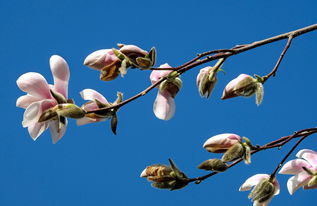在浩瀚的中华文库中,苏轼的《赤壁赋》犹如一颗璀璨明珠,以其独特的艺术魅力和深远的文化内涵,跨越千年时光,熠熠生辉,作为一篇集文学、历史、哲学于一体的散文诗,它不仅展示了东坡居士的文采风流,更承载了对人生、宇宙的深度思考,本文将详尽解读这篇千古佳作,从原文入手,辅以译文,以便读者能更好地理解和欣赏其精髓。
原文如下:
壬戌之秋,七月既望,苏子与客泛舟游于赤壁之下,清风徐来,水波不兴,举酒属客,诵明月之诗,歌窈窕之章,少焉,月出于东山之上,徘徊于斗牛之间,白露横江,水光接天,纵一苇之所如,凌万顷之茫然,浩浩乎如冯虚御风,而不知其所止;飘飘乎如遗世独立,羽化而登仙。
于是饮酒乐甚,扣舷而歌之,歌曰:“桂棹兮兰桨,击空明兮溯流光,渺渺兮予怀,望美人兮天一方。”客有吹洞箫者,倚歌而和之,其声呜呜然,如怨如慕,如泣如诉,余音袅袅,不绝如缕,舞幽壑之潜蛟,泣孤舟之嫠妇。
苏子愀然,正襟危坐而问客曰:“何为其然也?”客曰:“‘月明星稀,乌鹊南飞’,此非曹孟德之诗乎?西望夏口,东望武昌,山川相缪,郁乎苍苍,此非孟德之困于周郎者乎?方其破荆州,下江陵,顺流而东也,舳舻千里,旌旗蔽空,酾酒临江,横槊赋诗,固一世之雄也,而今安在哉?况吾与子渔樵于江渚之上,侣鱼虾而友麋鹿,驾一叶之扁舟,举匏樽以相属,寄蜉蝣于天地,渺沧海之一粟,哀吾生之须臾,羡长江之无穷,挟飞仙以遨游,抱明月而长终,知不可乎骤得,托遗响于悲风。”

苏子曰:“客亦知夫水与月乎?逝者如斯,而未尝往也;盈虚者如彼,而卒莫消长也,盖将自其变者而观之,则天地曾不能以一瞬;自其不变者而观之,则物与我皆无尽也,而又何羡乎!且夫天地之间,物各有主,苟非吾之所有,虽一毫而莫取,惟江上之清风,与山间之明月,耳得之而为声,目遇之而成色,取之无禁,用之不竭,是造物者之无尽藏也,而吾与子之所共适。”
……(此处省略部分)
这段文字描绘了一幅秋夜泛舟赤壁的壮丽画卷,融合了自然景观、历史典故和个人感慨,展现了作者超越世俗的心境和豁达的人生态度,翻译后的部分内容如下:
In the autumn of壬戌 year, on the 16th day of the seventh month, I, Su Zhi, together with a guest, embarked upon a boat and floated along the banks of the Red Cliffs. A gentle breeze blew, causing no ripples on the water. We toasted each other, reciting poetry about the moon, and singing a verse about beauty. Soon, the moon rose above the eastern mountains, hanging in the constellations of斗牛, while dew shimmered across the river's surface, merging with the sky.
We let our boat drift as if levitating on the air, losing ourselves in the vastness. It felt as if we were ascending to the heavens like celestial beings, beyond all bounds. Delighted, we sang and clapped our oars against the sides of the boat, inspired by the scene.
As we sang, a guest playing a flute harmonized with our song, evoking sorrowful longing. The music seemed to bewail and lament, lingering in the depths of the valleys and weeping for the widows on lonely boats.

Suddenly somber, I sat upright and asked the guest, "Why such melancholy?" The guest replied, "This isn't a poem by Cao Cao, the great conqueror? Gazing westward toward Xiahou and eastward toward Wujiang, the mountains and rivers entwined, so vast and dark. Wasn't it here that Cao was defeated by Zhuge Liang? He once ruled荆州, conquered Jingzhou, and sailed eastward with his mighty fleet, yet where are they now? Consider how we, mere fishermen and woodcutters, share this life with fish and deer, in a tiny boat, savoring the fleeting moment."
Understanding that we cannot grasp forever what we desire, we can only leave behind the echoes of our thoughts in the mournful wind.
In my response, I pointed out the impermanence of water and the moon, their constant ebb and flow, yet the unchanging essence of their beauty. The world, I argued, is in a constant flux, but what truly matters transcends these fleeting changes. The elements of nature—such as the wind and moon—are gifts to be enjoyed without limit, reminding us of the infinite bounty of creation.
……(Translation continues)
通过这篇赋,苏轼以自然景象为载体,寓言人生哲理,使读者深感生命之短暂与宇宙之永恒之间的对比,以及个体在天地间的渺小与自然规律的宏大。《赤壁赋》不仅是文学的艺术巅峰,更是国学中的一座丰碑,值得我们反复研读,从中汲取智慧与力量。
版权声明
本文仅代表作者观点,不代表百度立场。
本文系作者授权百度百家发表,未经许可,不得转载。











